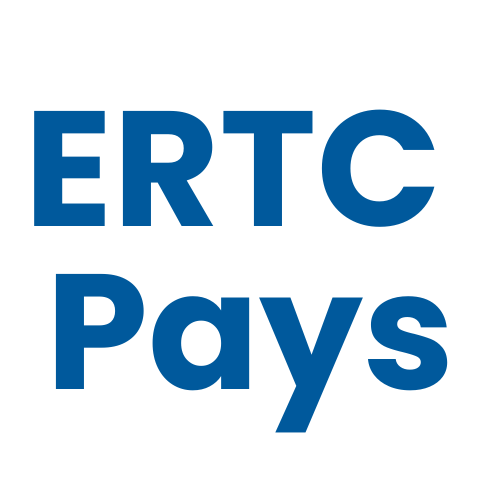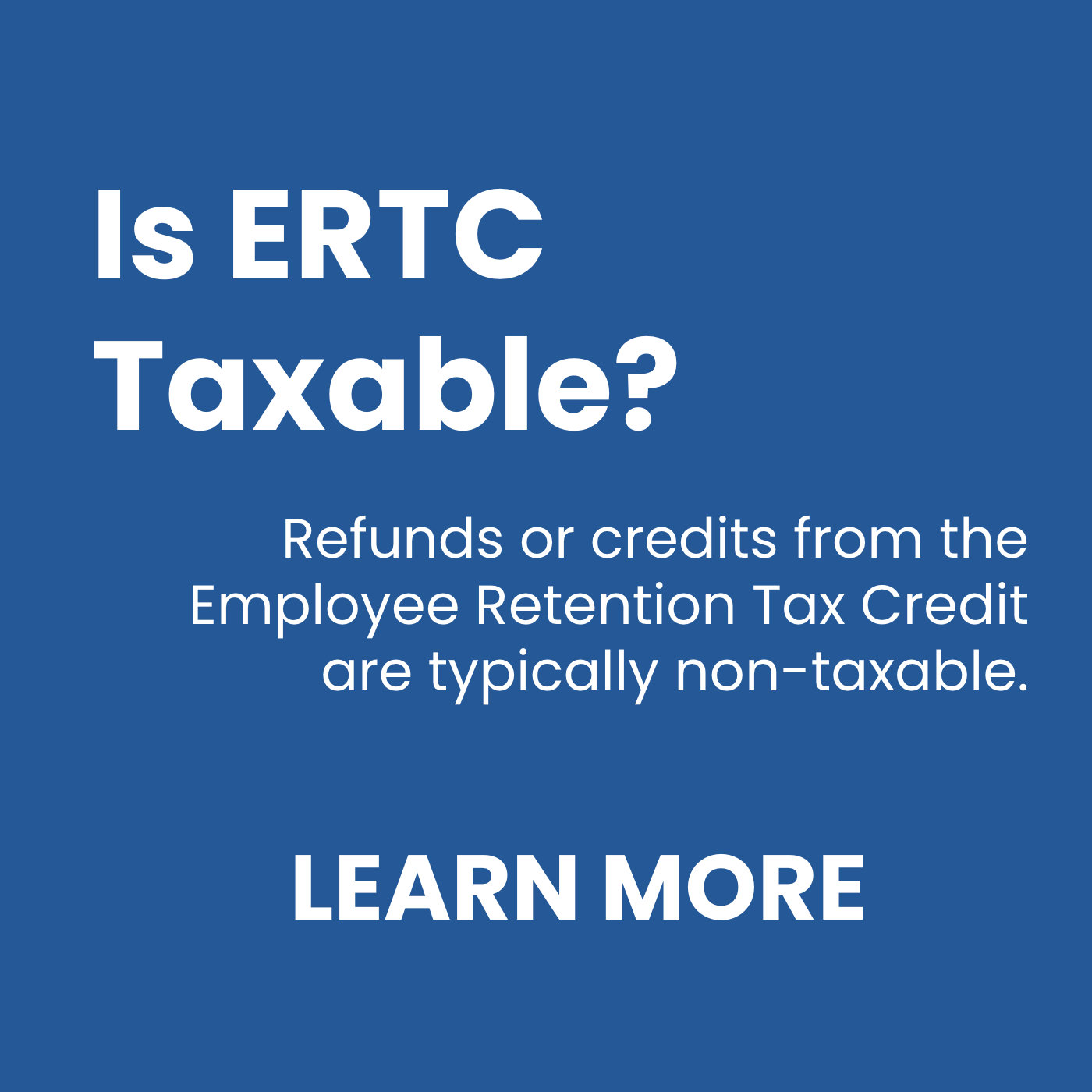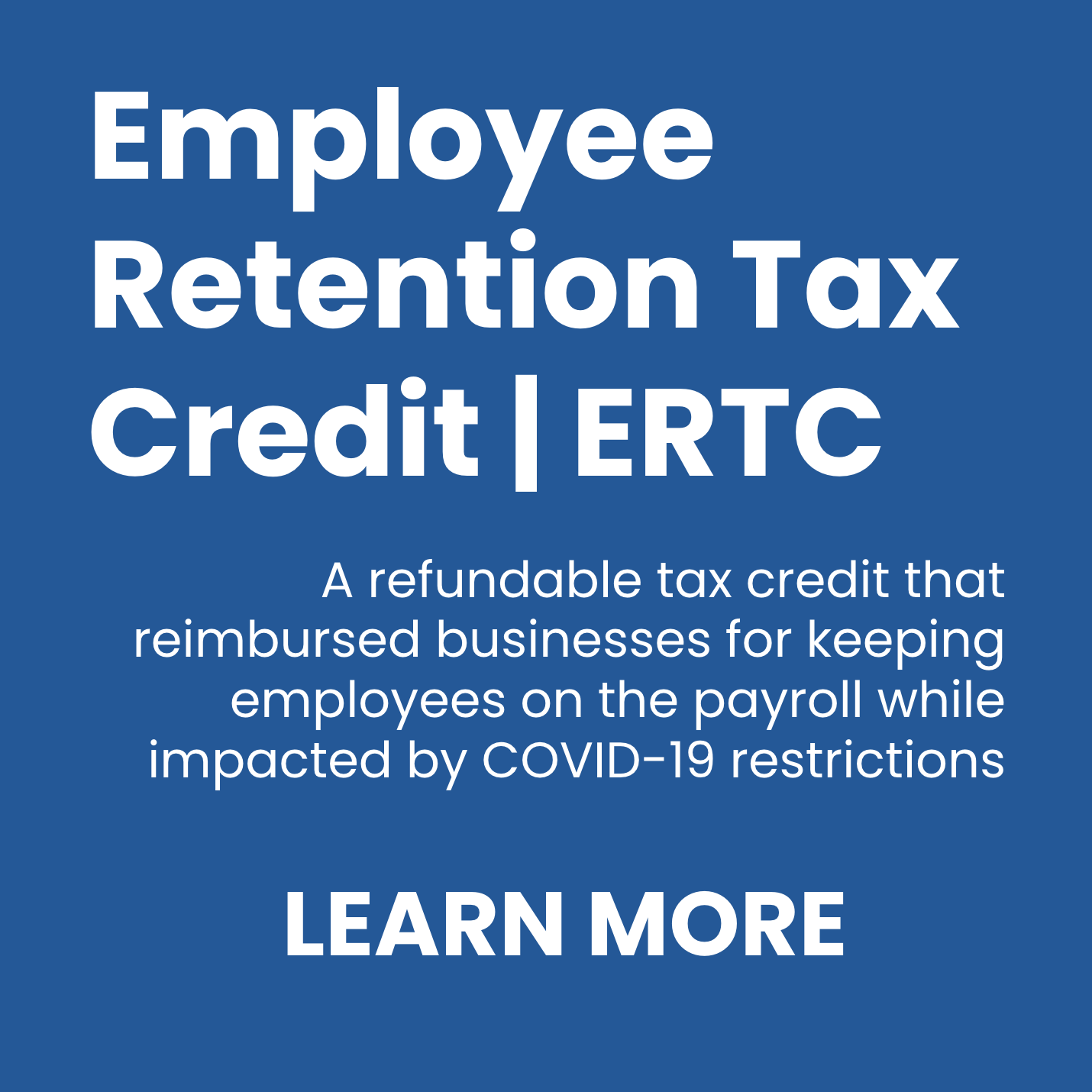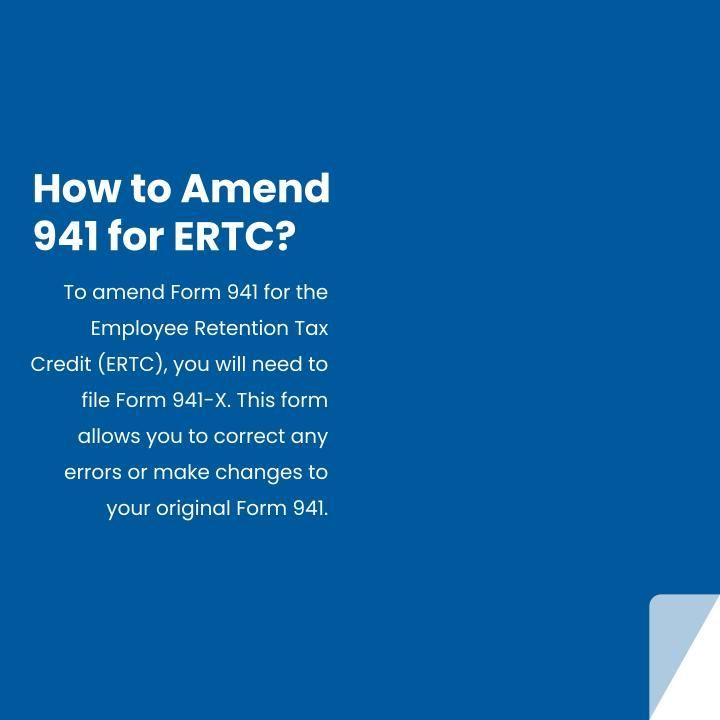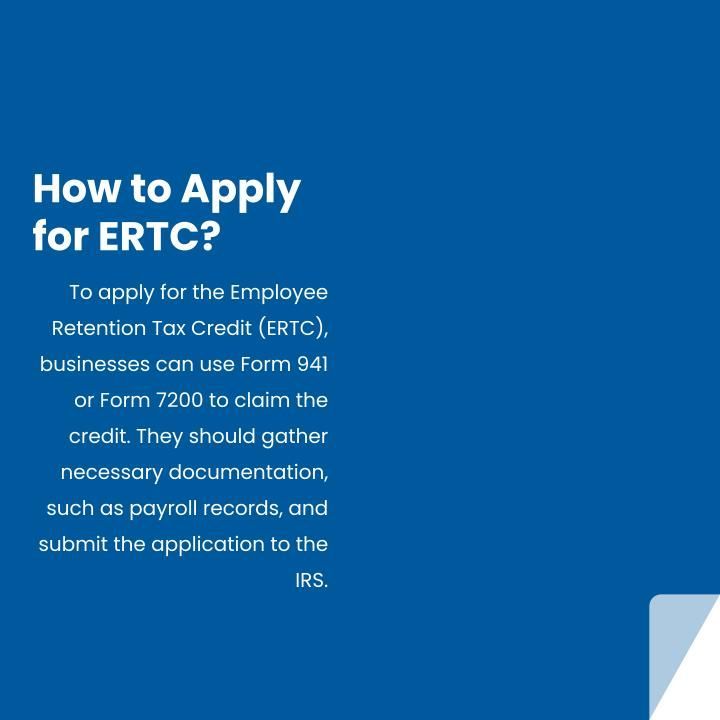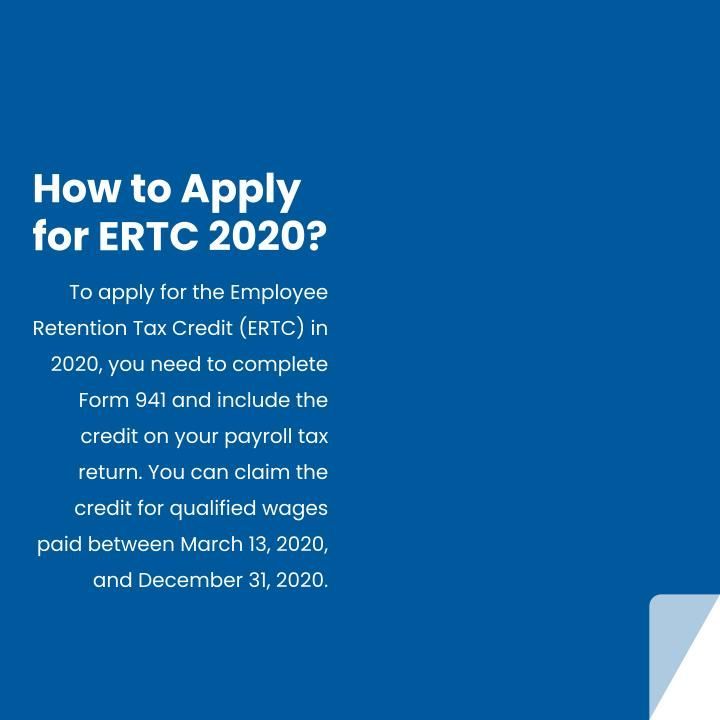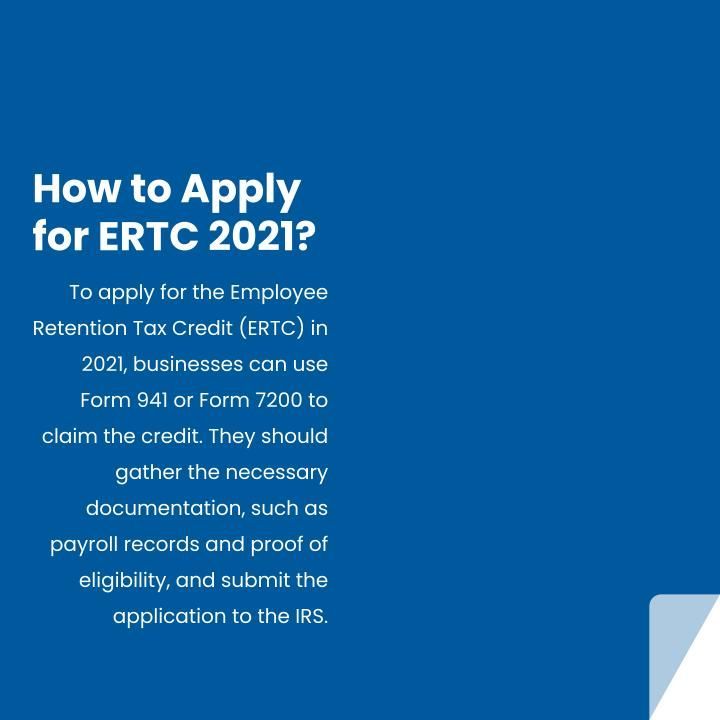How to Claim ERTC Retroactively?
How to Claim Employee Retention Tax Credit Retroactively?
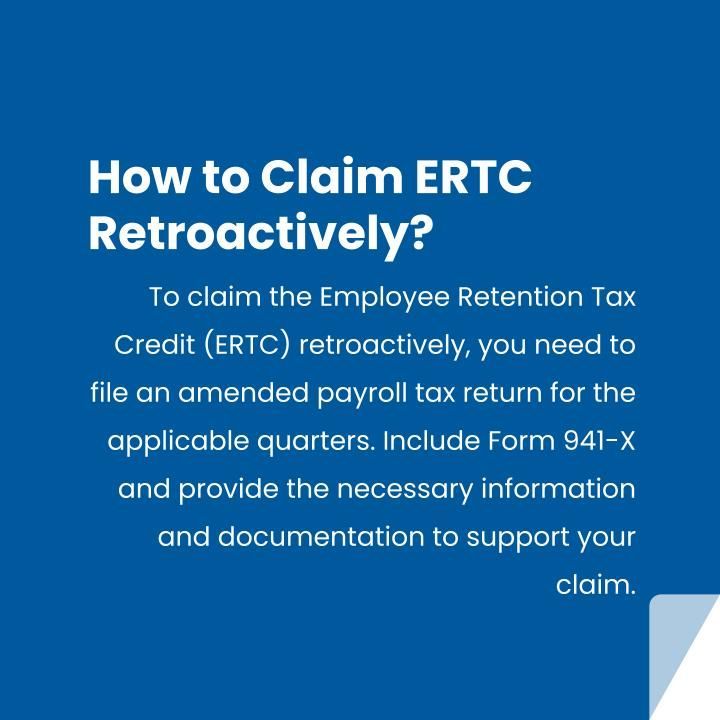
To claim the Employee Retention Tax Credit (ERTC) retroactively, eligible employers must follow the same steps as in subsequent years[2][4][5]. Here are some important steps to follow when claiming the ERTC retroactively:
Steps to Claiming the ERTC Retroactively
Determine Eligibility
To claim the ERTC retroactively, eligible employers must have experienced a significant decline in gross receipts or a full or partial suspension of operations due to government orders related to COVID-19[2][3][4][5][6]. Employers should ensure that they meet the eligibility criteria before applying for the credit.
Gather Required Information
To claim the ERTC retroactively, employers will need to gather the following information:
- Form 941 for the quarter(s) in which the qualified wages were paid
- Payroll records for the quarter(s) in which the qualified wages were paid
- Form 941-X
- Form 5884-C
File Form 941-X
Eligible employers can claim the ERTC retroactively by filing Form 941-X for each quarter they paid qualifying wages[2][4][5]. They can file this form up to three years after the date they filed Form 941[2][4][5]. Employers should follow the instructions provided on the form and ensure that they provide accurate information.
Provide a Detailed Explanation
Employers may be required to provide a detailed explanation of how they determined their correction when filing Form 941-X[1][2][5]. This may include information about the qualified wages paid, the decline in gross receipts, or the suspension of operations. Employers should consult with tax professionals to ensure that they provide a detailed explanation that meets the IRS requirements.
Consult with Tax Professionals
The ERTC can be a complex process, and employers may benefit from consulting with tax professionals to ensure compliance with eligibility requirements and maximize the benefits of the credit[1][4][5][6].
It's important to note that the ERTC has undergone updates and changes since its introduction. Employers should stay updated with the latest IRS guidance and consult with tax professionals to ensure compliance with eligibility requirements and maximize the benefits of the credit[1][4][5][6].
In conclusion, eligible employers can claim the Employee Retention Tax Credit (ERTC) retroactively by determining eligibility, gathering required information, filing Form 941-X, providing a detailed explanation, and consulting with tax professionals. By understanding the eligibility requirements and staying informed about IRS guidelines, eligible employers can take advantage of this financial incentive to retain their employees during challenging economic times.
Other ERTC Blog Posts and Updates
Free ERTC Eligibility Check with an Advisor
Affiliate Disclosure: Our advisors are from third-party ERTC advisory companies who can help you determine your eligibility and claim the ERTC at no upfront cost to you. They take their fee AFTER the tax credit is deposited and can offer funding if you don't want to wait. ERTCPays.com receive a small referral fee if you choose one of our recommended companies.
